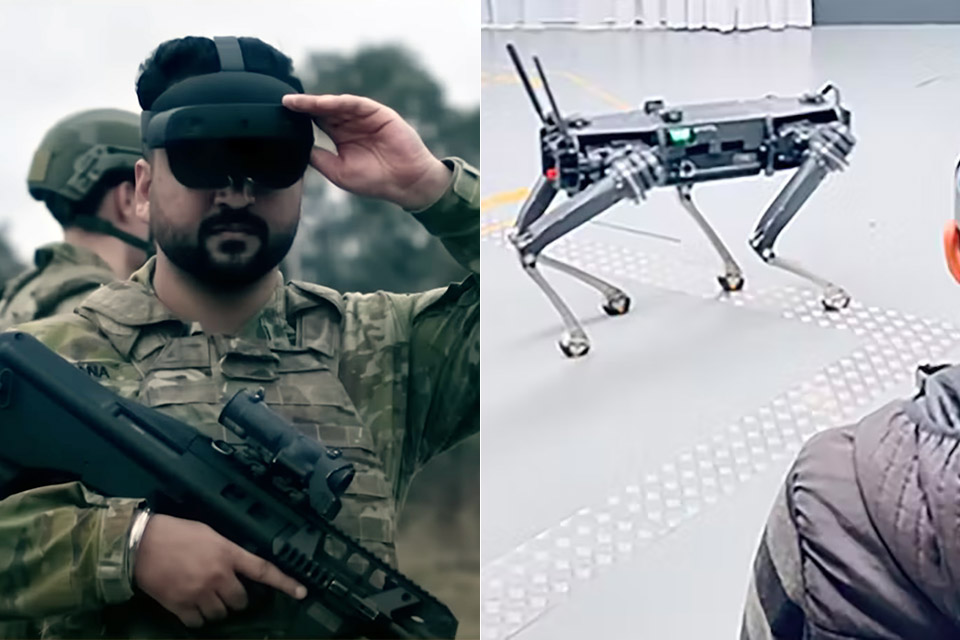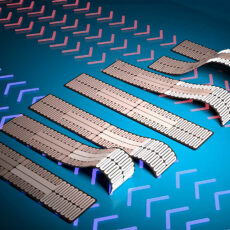
Thought-controlled robotic arms are one thing, this new biosensor technology by researchers at the University of Technology Sydney (UTS) makes mind-controlled robots a reality. Simply put, this hands-free, voice-free technology can work outside laboratory settings, anytime, anywhere, even in battle. It makes interfaces like consoles, keyboards, touchscreens, hand-gesture recognition and other input devices redundant.
This biosensor uses cutting edge graphene material, combined with silicon, to overcome corrosion and durability / skin contact resistance, making them very conductive, easy to use as well as robust. Users wear the hexagon patterned sensors over the back of the scalp, as they are designed to detect brainwaves from the visual cortex. These sensors are capable of withstanding harsh conditions so they can be used in extreme operating environments. A head-mounted augmented reality lens shows white flickering squares and by concentrating on a particular square, the brainwaves of the operator are picked up by the biosensor. The brainwaves are then sent to a decoder that translates them into commands.
- Experience total immersion with 3D positional audio, hand tracking and easy-to-use controllers working together to make virtual worlds feel real.
- Explore an expanding universe of over 500 titles across gaming, fitness, social/multiplayer and entertainment, including exclusive releases and...
- Enjoy fast, smooth gameplay and immersive graphics as high-speed action unfolds around you with a fast processor and immersive graphics.

Our technology can issue at least nine commands in two seconds. This means we have nine different kinds of commands and the operator can select one from those nine within that time period. We have also explored how to minimize noise from the body and environment to get a clearer signal from an operator’s brain,” said Professor Chin-Teng Lin from the UTS Faculty of Engineering and IT.






